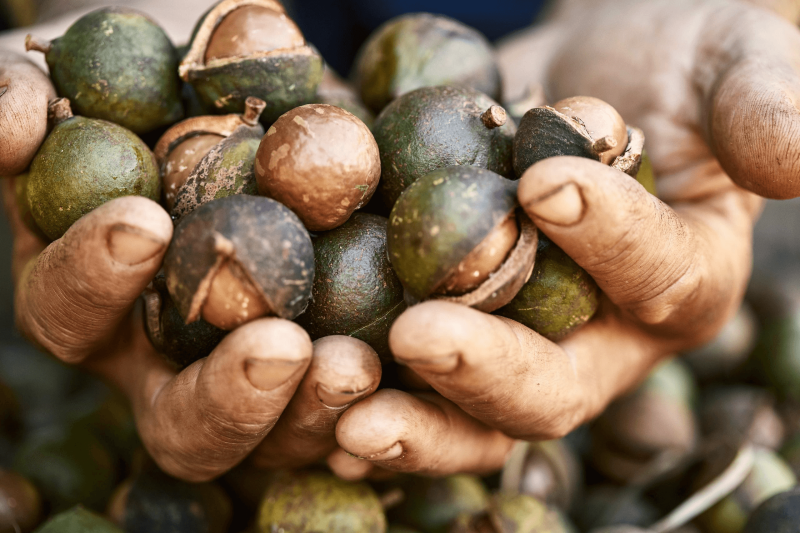If we tried to feed the global population today on the average agricultural yields of the 1960s, we would need to farm over 85 percent of global land, instead of the 35 percent we use currently. Critical to driving this change and maximising yields is the advent of synthetic fertiliser and genomics.
Seeking to harness the power of genomics to drive continued improvements in agriculture, most recently, I have focused my work on the macadamia nut. High in healthy fats, fibre and vitamins, the macadamia nut is also the most expensive nut on the market, largely due to the time they take to harvest.
First domesticated in Australia, macadamia trees take about eight years to produce a crop, and many more years before they can produce an economic yield of nuts. For me, that’s lost production time.
My research is attempting to produce a new breed of tree that is able to generate an economic yield in just a few years – bringing enormous benefits to farmers and expanding supply to consumers around the world.
…
Beyond macadamia trees, however, we need some big step changes – and that is what genomics offers. We see many opportunities for quite radical improvement of our current crops but we will need far greater improvement in the future with climate change and skyrocketing populations placing increased pressures on our global food supplies.































